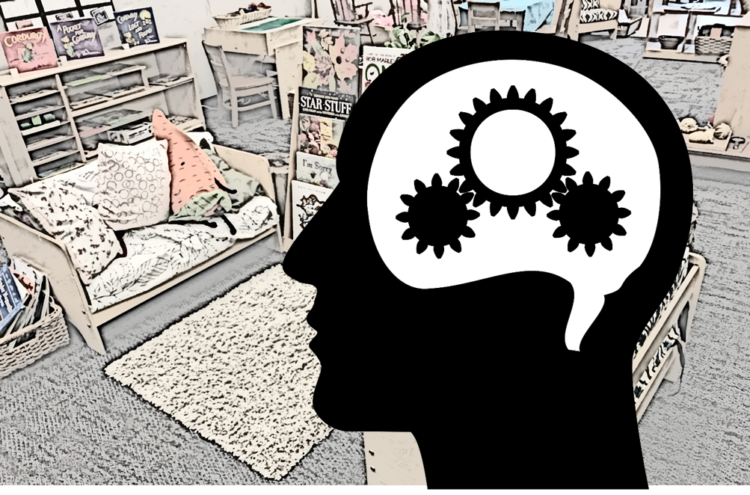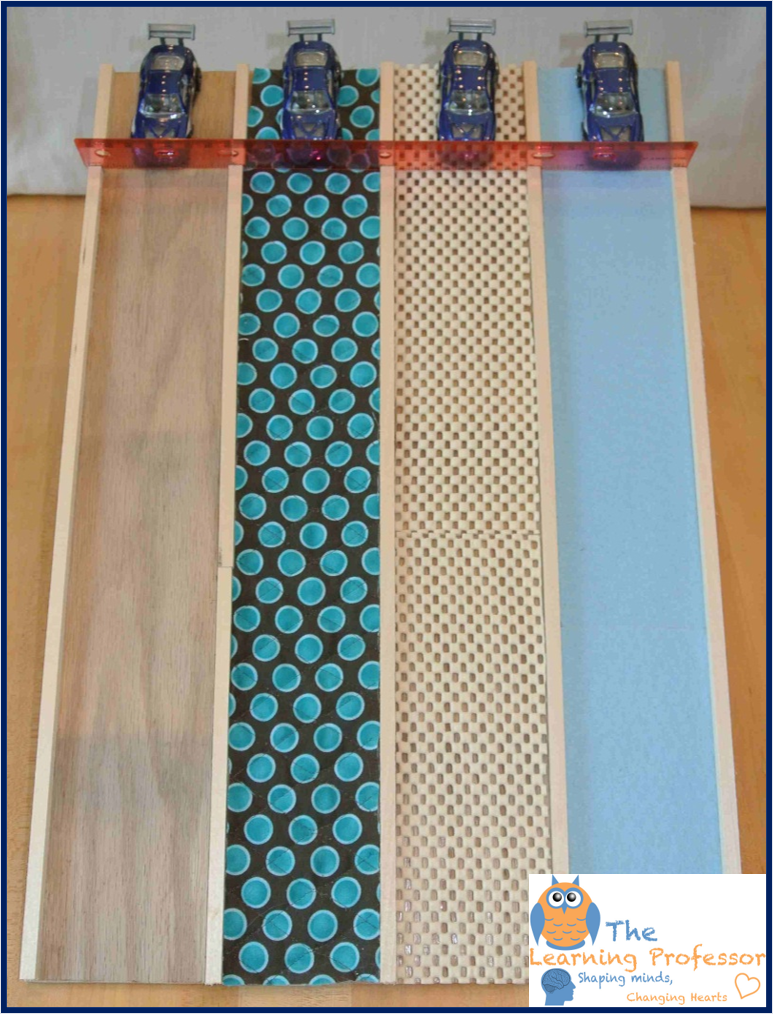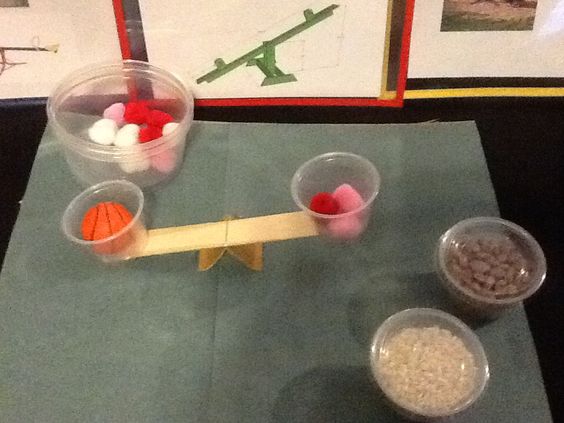On-Site Trainings
Bring the energy and passion to you!
Your Schedule
You pick the best start time for your employees. No more trying to fit something in that doesn't work for your employee's schedules. You can schedule trainings in the morning, afternoon, evening, or even on the weekend!
Your Location
The Learning Professor comes straight to your location! Trainings take place in the comfort of your own space. Your staff are not inconvenienced by longer drive times or by getting lost trying to find a new location.
Promote Consistency
Having an onsite training allows you to tailor content and ensure that everyone is hearing the same information at the same time. This will help your teachers to be consistent in their practices across the center.
Tailored Content
When you schedule an on-site, you can speak directly to Dr. Jacobs about your needs and concerns. She can make sure that these topics are addressed during the presentation. Tailoring the content makes the most of your time and money!
Quality Interaction
Your staff will be able to interact with an ECE expert and ask questions throughout the training. Their questions will be answered based on research, brain development, developmentally appropriate practice, and best practice guidelines.
Privacy
Having the training at your own facility allows your staff to talk about the issues that are prominent for them. No more listening to someone from a completely different type of center drone on and on about something that doesn't concern you.

“On-site workshops are a great way to be able to create a professional development day that meets your staff’s needs. It can really help staff to grasp new concepts when everyone in the room is on the same page and has the same requirements.
Offering workshops in person is one of my favorite things to do. I love feeling the energy in the room and really being able to tailor the workshop to meet individual needs. The interaction within the workshop can really help clarify topics for teachers, and the energy and excitement that I bring about the topics can give them that added push to actually implement the techniques.”
Want More Information?
Fill Out the Form Below!
Training Topics

Emotionally Supportive Environments
6 Hours
Emotional intelligence is a key success factor, but in order to develop emotional intelligence in others, we must first develop it in ourselves. This workshop takes a deep dive into examining our own behavior in order to learn about others' behavior. We will discuss psychological concepts such as the triune brain, the JoHari window, negative core beliefs, self-protecting behaviors, and regressed behaviors. Participants will examine their own history to determine influences on their interactions. We will then apply these concepts to our work in the ECE classroom as we discuss how to communicate with respect, the reasons that children misbehave, the effects of praise, and the pitfalls of typical classroom management strategies and systems.

Teaching to the Brain
2.5 Hours
We’ve all heard of teaching to the test, and we all know that this strategy has no long-term success for children’s learning. Instead, I suggest “teaching to the brain”….using what we know about how the brain develops to influence what we do in our classrooms. During the first five years of life, the brain develops at a rapid speed. Although the brain can be trained to memorize pieces of information, true learning and understanding comes from experiences that are tailored to the way the brain develops during these important years. In this session, we will explore the developing brain in connection with planning learning experiences for young children that maximize the foundation for later learning.

Creating Neural Pathways for Literacy Success
2 - 3 Hours
The field of neuroscience has used brain imaging to help us understand what happens as children learn to read. We will explore how to activate the necessary region of the brain that is required for reading and review the types of practices that are beneficial to children. Specifically, you’ll explore how the neural pathways for reading are constructed, the role of phonics and handwriting in reading instruction, why neuroscience supports phonics over whole language, the role of vocabulary in reading, and practical strategies for the classroom that support these research findings.

Hanging on Your Words: Communicating with Respect
3 Hours
What you say to a child and how you say it can make all the difference. Teacher and child interactions center around meaningful and thoughtful verbal exchanges. Every moment is an opportunity to help a child learn with carefully chosen language. Master the art of talking with children by focusing on what you say and how you say it. We'll explore creating a respectful classroom climate, communicating effectively, and look at how praise affects children. You'll find that creating a climate of reciprocal respect will benefit you, the children, and their families.

The Psychology Behind Behaviors
3 Hours
This unique workshop blends the worlds of psychology and early childhood to help you understand why children (and adults) behave the way they do. We’ll take a deep dive into classroom behavior and look at how the brain develops and influences behavior, how children develop negative core beliefs and the self-protecting behaviors that develop, and typical reasons why children misbehave. Teachers will walk away with a better understanding of why the children are doing what they are doing as well as insights into their own reactions. We’ll discuss concrete strategies for helping children through challenging behaviors so that teachers feel equipped to handle the children in their classrooms.

Equity, Equality, & Diversity: Social Justice Principles
2 Hours
“I treat everyone the same” is a mantra often heard in classrooms, but is this really the goal we should be striving for? This workshop will explore the differences between equity and equality, the idea of privilege, and how to honor, respect, and sustain the culture of each child in your learning environment. Learn about what a single story is, how to avoid it, and how to avoid a tourist-y approach to diversity. Only by understanding all of these concepts can we truly provide an equitable experience for all children.

Creating Your Literacy Curriculum
3 Hours
Literacy is something that must be intentionally planned for young children, but that doesn't mean that it should be too teacher-directed. This workshop is designed to give you a background in the types of literacy experiences that children should have access to in an early care program. This introductory level workshop will cover the big ideas of literacy, including vocabulary, alphabet knowledge, phonological and phonemic awareness, and concepts of print.

Creating Your Math Curriculum
3 Hours
Math is something that children do naturally. It can be a struggle to know what types of activities to provide for children to prepare them for Kindergarten. This workshop is designed to give you a background in the types of math experiences that preschoolers should have access to in an early care program. This introductory level workshop will cover the big ideas of mathematics, including number sense, algrebra, geometry, measurement, and data analysis.

Creating Your Science Curriculum
3 Hours
Science exploration comes naturally to children. Yet many of the science activities that are available online and even in stores are actually not appropriate for preschoolers. This workshop is designed to give you a background in the types of science experiences that preschoolers should have access to in an early care program. You will explore the specific factors that determine whether an activity is appropriate for preschoolers. You will discuss setting up a science area and the 3 areas of science curriculum that should be part of every early childhood classroom: physical science, life science, and earth and space science.

Creating Your Math Curriculum
3 Hours
Math is something that children do naturally. It can be a struggle to know what types of activities to provide for children to prepare them for Kindergarten. This workshop is designed to give you a background in the types of math experiences that preschoolers should have access to in an early care program. This introductory level workshop will cover the big ideas of mathematics, including number sense, algrebra, geometry, measurement, and data analysis.

Encouraging Number Sense in Preschool
3 Hours
This workshop provides teachers with an overview of number and number sense. It provides a foundation for assessment of quantification stages as well as information on the types of everyday activities that encourage the development of number sense in young children. Participants will learn about grid games, math manipulatives, and teacher-made path games.

Creating Your Social Studies Curriculum
6 Hours
Social Studies is a subject area that doesn’t have an actual “center” in a classroom. It happens in the everyday interactions in the classroom. This workshop is designed to give you a background in the types of experiences that qualify as social studies experiences for preschoolers. You will discuss how history, geography, economics, government, and culture can be applied in a developmentally appropriate way.

Physical Science Activities
3 Hours
This workshop will explore concepts of physical science to share with your preschoolers. Learn about the levels of scientific thinking and questioning strategies that encourage scientific thinking. We’ll explore fun ways to incorporate simple machines into your classroom.

Moving Beyond Letter of the Week
3 Hours
How do you promote letter recognition and phonological awareness skills for preschool children in meaningful ways? Why is a letter of the week approach not the best way to teach these skills? If I don't do letter of the week or worksheets, how do I promote letter recognition? In this workshop we'll explore fun strategies for teaching children to recognize letters, sounds, and words in ways that are developmentally appropriate and prepare children for success in kindergarten.

You Can't Come to My Birthday Party
2.5 Hours
Do you struggle to help the children in your classroom maintain peaceful peer relationships? This workshop will provide a glimpse into children's social competence, giving you a better understanding of the reasons behind their actions. You will learn how to assess social competence and strategies to assist children in developing age-appropriate peer relationships in your classroom setting.

More Than Dress Up: Dramatic Play for Preschoolers
3.0 Hours
This workshop will explore the benefits of dramatic play for young children. Research shows that extended, mature dramatic play increases executive function skills in young children. Learn how to go beyond basic housekeeping to explore ideas for dramatic play centers that incorporate math, science, and literacy.
Pricing
Pricing includes all handouts, technology, travel, and accommodations.
2 - 3 Hour Training
Less than 45 minutes from Cincinnati $700
2 hour radius of Cincinnati $800
3 hour radius of Cincinnati $950
4 hour radius of Cincinnati $1100
4 - 6 Hour Training
Less than 45 minutes from Cincinnati $1400
2 hour radius of Cincinnati $1600
3 hour radius of Cincinnati $1900
4 hour radius of Cincinnati $2200
5-8 hours from Cincinnati $2800
9-11 hours from Cincinnati $3500
Two 3 hour trainings can be combined to receive the 4 – 6 hour training price. A deposit of 50% required to reserve date.
For keynote presentations, more than 45 participants, or locations more than 4 hours away please call for pricing.
